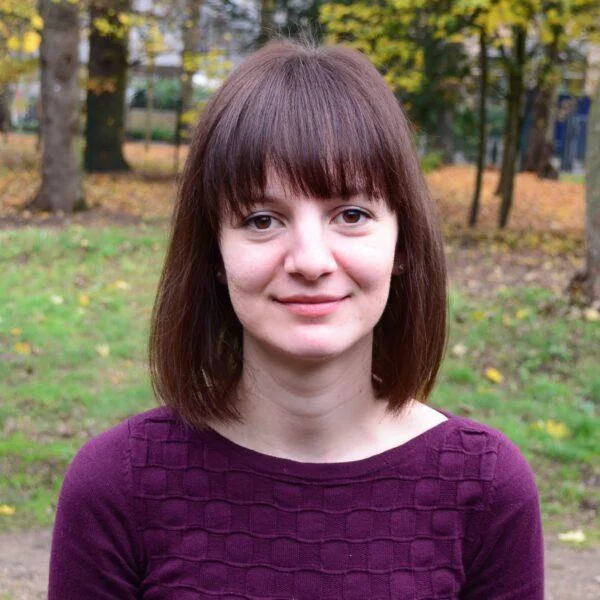Research Focus
We are interested in understanding the cellular and molecular mechanisms that promote cancer cell plasticity and adaptation of tumour cells in metastatic niches and under therapeutic pressure. By using dynamic analyses of the tumour microenvironment and metastatic niche in human samples and preclinical models, in conjunction with single-cell omics, imaging and computational analyses, we aim to achieve a systems-level understanding of the molecular circuits and cellular crosstalk driving metastasis and therapy resistance.
Key Publications
- MultiMAP: dimensionality reduction and integration of multimodal data. Genome Biology (2021) 22(1):346. PMID: 34930412
- Single-Cell RNA Sequencing Reveals a Dynamic Stromal Niche That Supports Tumor Growth. Cell Reports (2020) 31(7):107628. PMID: 32433953
- CellPhoneDB: Inferring cell-cell communication from combined expression of multi-subunit receptor-ligand complexes. Nature Protocols (2020) 15(4):1484-1506. PMID: 32103204
- Single-cell reconstruction of the early maternal-fetal interface in humans. Nature (2018) 563(7731):347-353. PMID: 30429548
Major Funding
- 2023-2029 - CRUK Career Establishment Award, “Characterising the cellular state transitions mediating colorectal cancer metastasis”, £1,043,000
- 2022 - Leukaemia UK, John Goldman Fellowship, “Investigating the mechanisms underlying plasticity in therapy resistance in B cell lymphomas”, £150,000
- 2021-2024 - Chan Zuckerberg Initiative, Single-Cell Multi-omic and Spatial Cell Atlas of Pediatric Skin
- 2020-2023 - Barts Charity, Dissecting the molecular circuits driving metastasis in melanoma
Other Activities
- Part of the Programme Team for the Cancer Genomics & Data Sciences MSc Programme at BCI, Queen Mary University of London.
Research
We employ a multidisciplinary approach that integrates computational and experimental strategies. Through collaborations with clinicians and researchers, we have access to patient samples and preclinical models, focusing on melanoma, pancreatic and colorectal cancer. By integrating single-cell multi-omics data, imaging and computational methods, our lab aims to dissect the cancer cell intrinsic traits and cell-cell communication networks that promote metastasis and therapy resistance.
The main areas of focus are:
Cancer Cell Plasticity
Cancer cells maintain an intrinsic plasticity that allows them to reversibly change their phenotype in response to microenvironmental signals and switch between cellular states. Single-cell studies have revealed extensive transcriptional heterogeneity along with lineage mixing and plasticity in several cancer types. In metastases, cells co-opt developmental programs and are reset to an even more primitive differentiation state, mimicking organ formation to reinitiate growth in a new location.
Using patient samples and multi-omics single-cell and bulk data, we are investigating the genetic vs non-genetic tumour heterogeneity and the regulatory networks underlying plasticity and invasiveness during metastasis.
Cell-cell communication
There is a growing understanding that the metastatic microenvironment is crucial in enabling the growth of disseminated cancer cells. In addition to the tumour cell intrinsic plasticity, local niche factors from stromal and immune cells influence tumour cell phenotypes and likewise, distinct cancer phenotypes shape the tumour microenvironment.
Our aim is to understand how cancer cells adapt to the metastatic niche and how in turn, immune and stromal cells support tumour cell plasticity and metastasis formation.
Therapy Resistance
Accumulating evidence implicates phenotypic plasticity as a key mechanism towards development of resistance to both targeted and immunotherapy. We aim to understand the molecular and cellular mechanisms driving phenotypic transitions in therapy resistance. By characterising the repertoire of phenotypes present both prior to and after therapy exposure, we are investigating the phenotypic states that promote resistance and their therapeutic vulnerabilities.
Our overarching goal is to identify key targets that drive metastasis formation and therapy resistance and find potential therapeutic strategies that disrupt crucial tumour-microenvironment interactions.
Other Activities
- Part of the Programme Team for the Cancer Genomics & Data Sciences MSc Programme at BCI, Queen Mary University of London.
Major Funding
- 2023-2029 - CRUK Career Establishment Award, “Characterising the cellular state transitions mediating colorectal cancer metastasis”, £1,043,000
- 2022 - Leukaemia UK, John Goldman Fellowship, “Investigating the mechanisms underlying plasticity in therapy resistance in B cell lymphomas”, £150,000
- 2021-2024 - Chan Zuckerberg Initiative, Single-Cell Multi-omic and Spatial Cell Atlas of Pediatric Skin
- 2020-2023 - Barts Charity, Dissecting the molecular circuits driving metastasis in melanoma
Recent Publications
scMoMaT jointly performs single cell mosaic integration and multi-modal bio-marker detection Zhang Z, Sun H, Mariappan R et al. Nature Communications (2023) 14(7)
1009 – GENETIC IDENTIFICATION OF THE CELLULAR INTERACTOME THAT SUPPORTS T-CELL DEVELOPMENT IN THE THYMUS Ganuza M, Sanchez-Lanzas R, Jimenez-Pompa A et al. Experimental Hematology (2023) 124(10) s24
GENETIC IDENTIFICATION OF THE CELLULAR INTERACTOME THAT SUPPORTS T-CELL DEVELOPMENT IN THE THYMUS Ganuza M, Sanchez-Lanzas R, Jimenez-Pompa A et al. EXPERIMENTAL HEMATOLOGY (2023) 124(11) S24-S24
https://www.webofscience.com/api/gateway?GWVersion=2&SrcApp=PARTNER_APP&SrcAuth=LinksAMR&KeyUT=WOS:001057881700006&DestLinkType=FullRecord&DestApp=ALL_WOS&UsrCustomerID=612ae0d773dcbdba3046f6df545e9f6a
Longitudinal Single Cell Analyses Reveal the Co-Evolutionary Dynamics of the Tumor and Microenvironment Accompanying Follicular Lymphoma Transformation Perrett M, Pickard L, Kumar E et al. Blood (2022) 140(10) 748-749
A Roadmap for the Human Oral and Craniofacial Cell Atlas Caetano AJ, Sequeira I, Byrd KM et al. Journal of Dental Research (2022) 101(7) 1274-1288
Spatially resolved poised immunity in human skin Fletcher J, Vegh P, Reynolds G et al. BRITISH JOURNAL OF DERMATOLOGY (2022) 187(11) E7-E8
https://www.webofscience.com/api/gateway?GWVersion=2&SrcApp=PARTNER_APP&SrcAuth=LinksAMR&KeyUT=WOS:000820115600063&DestLinkType=FullRecord&DestApp=ALL_WOS&UsrCustomerID=612ae0d773dcbdba3046f6df545e9f6a
MultiMAP: dimensionality reduction and integration of multimodal data Jain MS, Polanski K, Conde CD et al. Genome Biology (2021) 22(7)
Blood and immune development in human fetal bone marrow and Down syndrome Jardine L, Webb S, Goh I et al. Nature (2021) 598(7) 327-331
Mapping Rora expression in resting and activated CD4+ T cells Haim-Vilmovsky L, Henriksson J, Walker JA et al. PLoS ONE (2021) 16(7)
Developmental cell programs are co-opted in inflammatory skin disease Reynolds G, Vegh P, Fletcher J et al. Science (2021) 371(7)
For additional publications, please click here
